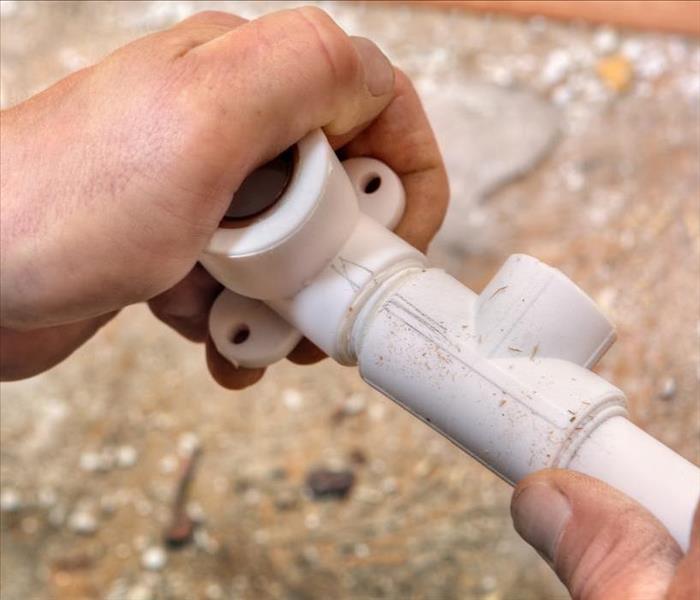4 Reasons To Replace Polybutylene Pipes
10/5/2021 (Permalink)
Many property owners build structures from the ground up. If, however, you own an older commercial building, particularly one built between the 1970s and the 1990s, you should have the plumbing inspected for polybutylene pipes. While at that time these pipes were popular because of their relatively low cost, they ultimately cause many issues that lead to expensive repairs and other potential problems.
Why replace polybutylene pipes?
1. Prevent Disastrous Leaks Caused by Faulty Polybutylene Pipes
One reason to get a new plumbing system in your building is that older pipes don't stand up well to chemicals from the water treatment plant. Eventually, these chemicals will wear down the pipes, causing many issues:
- Brittle surface
- Weakened pipe walls
- Pinhole leaks
These small flaws can turn into large problems over time. This is particularly true of pipes made from outdated and insufficient materials. The leaks can damage your building's foundation and any materials the water comes into contact with. While a good plumber and water restoration experts can fix the damage as it happens, ultimately they are only addressing the symptoms of the real problem. Faulty pipes will keep getting leaks. Rather than patching the small leaks as they occur, it's better to just replace the whole failing system at once.
2. Protect Water Quality With Replacement
Water loss and the subsequent damage it causes aren't the only potential problems that faulty pipes can bring. Additionally, the degradation in polybutylene pipes often leads to lower water quality. As particles flake off and disintegrate, they deposit chemicals into the water that likely would not meet safety standards. If your commercial building in Bountiful, UT, has older pipes, replacing the whole system is the right step toward keeping the water quality level high.
3. Keep Your Building Up to Code
Because of the known issues with these outdated materials, your city's building codes no longer allow for their use. Therefore, as long as your plumbing system includes them, your building is unlikely to pass municipal inspection. This can lead to costly fines or even larger consequences if you do not replace them.
4. Appease Insurance Provider
You have an obligation as the building owner to keep it in reasonably good shape and make necessary repairs and upgrades in a timely manner. This is part of the agreement you make with the insurance company that agrees to protect your property. One of the potential consequences of not meeting building codes due to faulty pipes is that your insurance provider is unlikely to cover any water damage that occurs as a result. You may lose your coverage, and then you are stuck not only with the cost of replacing a failing plumbing system but also the full set of expenses associated with repairing subsequent damage.
This necessary upgrade not only prevents damage and protects your water quality but also ensures that your plumbing system meets the standards outlined in municipal codes and expected by your insurance provider. If you own a commercial building that still has polybutylene pipes, it's important to replace them as soon as possible.






 24/7 Emergency Service
24/7 Emergency Service